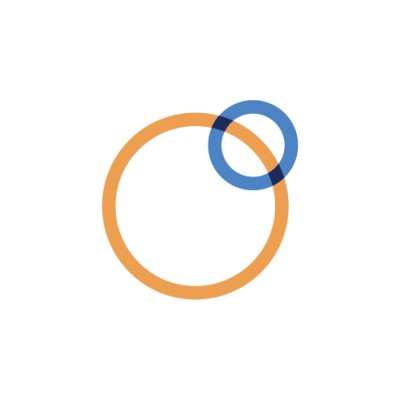Houston's Biotech Revolution: A New Dawn in Cancer Treatment
January 31, 2025, 5:02 am

Location: United States, Texas, Houston
Employees: 11-50
Founded date: 2018
Total raised: $52M

Location: United States, Ohio, Cleveland
Employees: 10001+
Founded date: 1921
Total raised: $24.22M
In the heart of Houston, a biotech revolution is brewing. Cellenkos Therapeutics, a female-founded company, is making waves with its innovative approach to treating myelofibrosis, a rare and challenging blood cancer. This breakthrough could change the game for patients who have long been sidelined by ineffective treatments.
Myelofibrosis is a cruel disease. It transforms bone marrow into scar tissue, stifling the production of healthy blood cells. Patients often face fatigue, spleen enlargement, and night sweats. The current standard of care relies heavily on JAK inhibitors, which suppress the immune response but fail to halt disease progression. For many, these medications are a dead end. The six-year median survival rate looms like a dark cloud over those affected, with only 16,000 to 18,500 people diagnosed in the U.S. each year.
Enter Cellenkos and its Treg cell therapy, CK0804. This innovative treatment harnesses the power of cord-blood-derived T cells, a unique subset that can target and restore balance in the bone marrow. The results from Phase 1b testing are promising. Early signs of efficacy and a favorable safety profile have sparked hope among patients and clinicians alike. Cellenkos is not just aiming to treat myelofibrosis; it seeks to address a broader spectrum of rare conditions, including inflammatory and autoimmune disorders.
The company’s founder, Dr. Simrit Parmar, a physician and professor at MD Anderson Cancer Center, has dedicated her career to unraveling the complexities of cancer treatment. Her research has illuminated the potential of Treg cells to home in on bone marrow, offering a new lifeline to patients who have exhausted conventional options. Cellenkos is currently enrolling patients for an expansion cohort, eager to further explore the clinical potential of CK0804.
This is not just a story of one company. It reflects a larger trend in Houston’s biotech landscape. The city is becoming a hub for innovation, with startups like Cellenkos leading the charge. The biotech sector is evolving rapidly, fueled by fresh funding and groundbreaking research. In 2021, Cellenkos secured $15 million in a Series A round led by BVCF Management, a significant step toward realizing its vision.
The implications of this research extend beyond myelofibrosis. Cellenkos is also developing CK0801, a candidate that has shown promise in treating aplastic anemia. This dual focus on rare blood cancers and autoimmune disorders positions Cellenkos as a key player in the fight against diseases that often go overlooked.
As the company navigates the complexities of clinical trials, it is also part of a broader ecosystem of innovation in Houston. The city is home to a vibrant network of startups, researchers, and investors, all working toward a common goal: improving patient outcomes through advanced therapies. This collaborative spirit is evident in initiatives like the Houston health care leaders’ new hub for cancer-fighting bioengineering, which aims to accelerate the development of life-saving treatments.
But the journey is not without challenges. The biotech landscape is fraught with uncertainty. Regulatory hurdles, funding pressures, and the ever-present need for robust clinical data can make or break a company. Yet, the potential rewards are immense. A successful therapy can transform lives, offering hope where there was none.
The rise of Cellenkos is a testament to the power of innovation and resilience. It embodies the spirit of Houston—a city that thrives on ambition and creativity. As the company continues its clinical trials, the eyes of the medical community are watching closely. The stakes are high, but so are the hopes of patients yearning for new options.
In the realm of cancer treatment, every breakthrough is a beacon of hope. Cellenkos Therapeutics is not just developing a therapy; it is paving the way for a future where rare diseases are met with effective solutions. The journey is long, but with each step, the horizon brightens.
As we look ahead, the story of Cellenkos is just beginning. It represents a new dawn in cancer treatment, one that could redefine the landscape for patients battling myelofibrosis and beyond. Houston is not just a backdrop; it is the stage for a biotech revolution that promises to change lives. The world is watching, and the future is filled with potential.
Myelofibrosis is a cruel disease. It transforms bone marrow into scar tissue, stifling the production of healthy blood cells. Patients often face fatigue, spleen enlargement, and night sweats. The current standard of care relies heavily on JAK inhibitors, which suppress the immune response but fail to halt disease progression. For many, these medications are a dead end. The six-year median survival rate looms like a dark cloud over those affected, with only 16,000 to 18,500 people diagnosed in the U.S. each year.
Enter Cellenkos and its Treg cell therapy, CK0804. This innovative treatment harnesses the power of cord-blood-derived T cells, a unique subset that can target and restore balance in the bone marrow. The results from Phase 1b testing are promising. Early signs of efficacy and a favorable safety profile have sparked hope among patients and clinicians alike. Cellenkos is not just aiming to treat myelofibrosis; it seeks to address a broader spectrum of rare conditions, including inflammatory and autoimmune disorders.
The company’s founder, Dr. Simrit Parmar, a physician and professor at MD Anderson Cancer Center, has dedicated her career to unraveling the complexities of cancer treatment. Her research has illuminated the potential of Treg cells to home in on bone marrow, offering a new lifeline to patients who have exhausted conventional options. Cellenkos is currently enrolling patients for an expansion cohort, eager to further explore the clinical potential of CK0804.
This is not just a story of one company. It reflects a larger trend in Houston’s biotech landscape. The city is becoming a hub for innovation, with startups like Cellenkos leading the charge. The biotech sector is evolving rapidly, fueled by fresh funding and groundbreaking research. In 2021, Cellenkos secured $15 million in a Series A round led by BVCF Management, a significant step toward realizing its vision.
The implications of this research extend beyond myelofibrosis. Cellenkos is also developing CK0801, a candidate that has shown promise in treating aplastic anemia. This dual focus on rare blood cancers and autoimmune disorders positions Cellenkos as a key player in the fight against diseases that often go overlooked.
As the company navigates the complexities of clinical trials, it is also part of a broader ecosystem of innovation in Houston. The city is home to a vibrant network of startups, researchers, and investors, all working toward a common goal: improving patient outcomes through advanced therapies. This collaborative spirit is evident in initiatives like the Houston health care leaders’ new hub for cancer-fighting bioengineering, which aims to accelerate the development of life-saving treatments.
But the journey is not without challenges. The biotech landscape is fraught with uncertainty. Regulatory hurdles, funding pressures, and the ever-present need for robust clinical data can make or break a company. Yet, the potential rewards are immense. A successful therapy can transform lives, offering hope where there was none.
The rise of Cellenkos is a testament to the power of innovation and resilience. It embodies the spirit of Houston—a city that thrives on ambition and creativity. As the company continues its clinical trials, the eyes of the medical community are watching closely. The stakes are high, but so are the hopes of patients yearning for new options.
In the realm of cancer treatment, every breakthrough is a beacon of hope. Cellenkos Therapeutics is not just developing a therapy; it is paving the way for a future where rare diseases are met with effective solutions. The journey is long, but with each step, the horizon brightens.
As we look ahead, the story of Cellenkos is just beginning. It represents a new dawn in cancer treatment, one that could redefine the landscape for patients battling myelofibrosis and beyond. Houston is not just a backdrop; it is the stage for a biotech revolution that promises to change lives. The world is watching, and the future is filled with potential.

